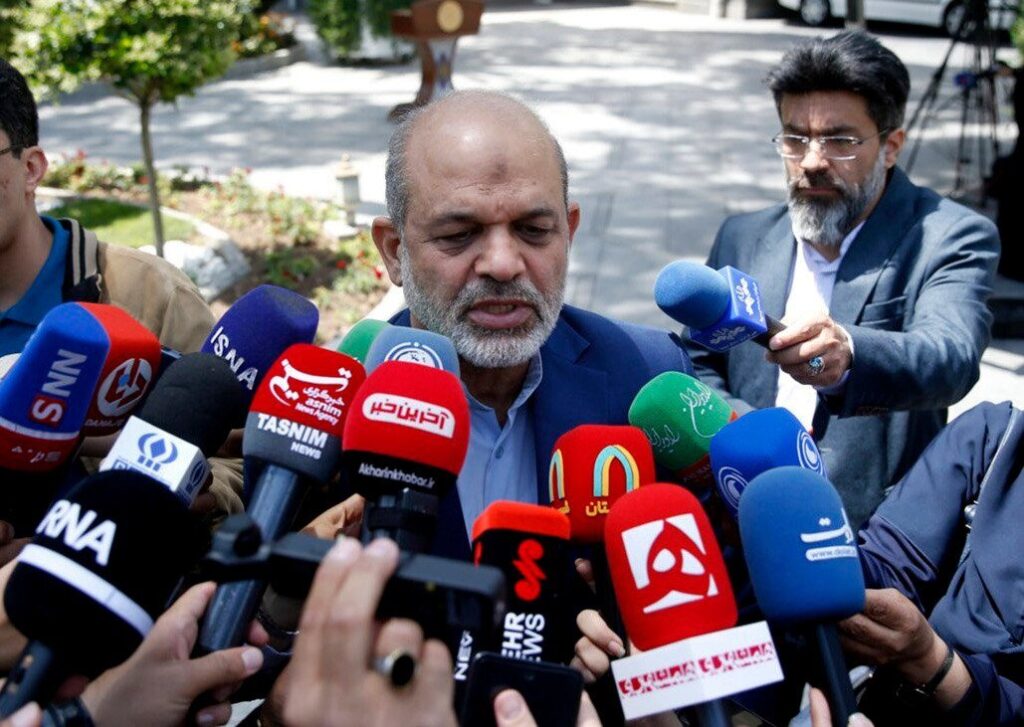TEHRAN – Iran's interior minister has outlined procedures and preparations for the upcoming presidential elections, highlighting the role of the Constitutional Council in vetting candidates and the two-week period allotted for election advertising.
Speaking on the sidelines of the weekly cabinet meeting on Wednesday, Minister Ahmad Vahidi acknowledged the nation's grief following the tragic helicopter crash that claimed the lives of President Ebrahim Raisi and other senior government officials.
Despite the nation's grief, he stressed that officials must do their jobs to ensure the early elections are conducted smoothly.
Vahidi confirmed that all necessary preparations have been made, including setting up an election headquarters as required by law, forming an executive committee, notifying state authorities and setting up an advertising committee.
He announced that registration of candidates would begin from Thursday for five days from 8 am daily.
Applicants will have to meet certain criteria, including age requirement and no criminal record, as detailed in the official notification.
After registration, the Constitutional Council will review the candidates' qualifications. Approved candidates will have a two-week campaign, which will end on June 28, the first day of voting in the presidential election. If no candidate receives a majority, a runoff election will be held on July 5.
Regarding the possibility of e-voting, Minister Vahidi suggested that voter authentication would be carried out electronically, but full e-voting in some cities would require further agreement with the Constitutional Council.
He stressed the importance of inclusive participation from all political perspectives and expressed hope for elections characterized by health, safety, participation and competition, as underlined by Leader of the Islamic Revolution Ayatollah Khamenei.
The helicopter crash that shocked Iran and resulted in the deaths of President Raisi and others had a profound impact on the country.
In response to the tragedy, a spokesman for Iran's Constitutional Council reiterated constitutional provisions that guarantee continuity in the presidency.
Hadi Tahan Nazif asserted that in accordance with the constitution and historical precedents following the Islamic Revolution, the presidency would remain in office for a four-year term starting immediately after the elections.
“This is a regrettable and painful loss for the Iranian people,” Nazif said, referring to Article 131 of the constitution which stipulates that in such an event, the first vice president assumes the duties and powers of the president with the leader's approval.
Following the fatal helicopter crash, interim President Mohammad Mokbel held an important meeting with the heads of Iran's legislative and judicial branches. The meeting, attended by Parliament Speaker Mohammad Bagher Ghalibaf and Judiciary Chief Gholam Hossein Mohseni Ejei, stressed the need for continued coordination and cooperation among the three branches of government to navigate the challenges facing the country in these difficult times.

